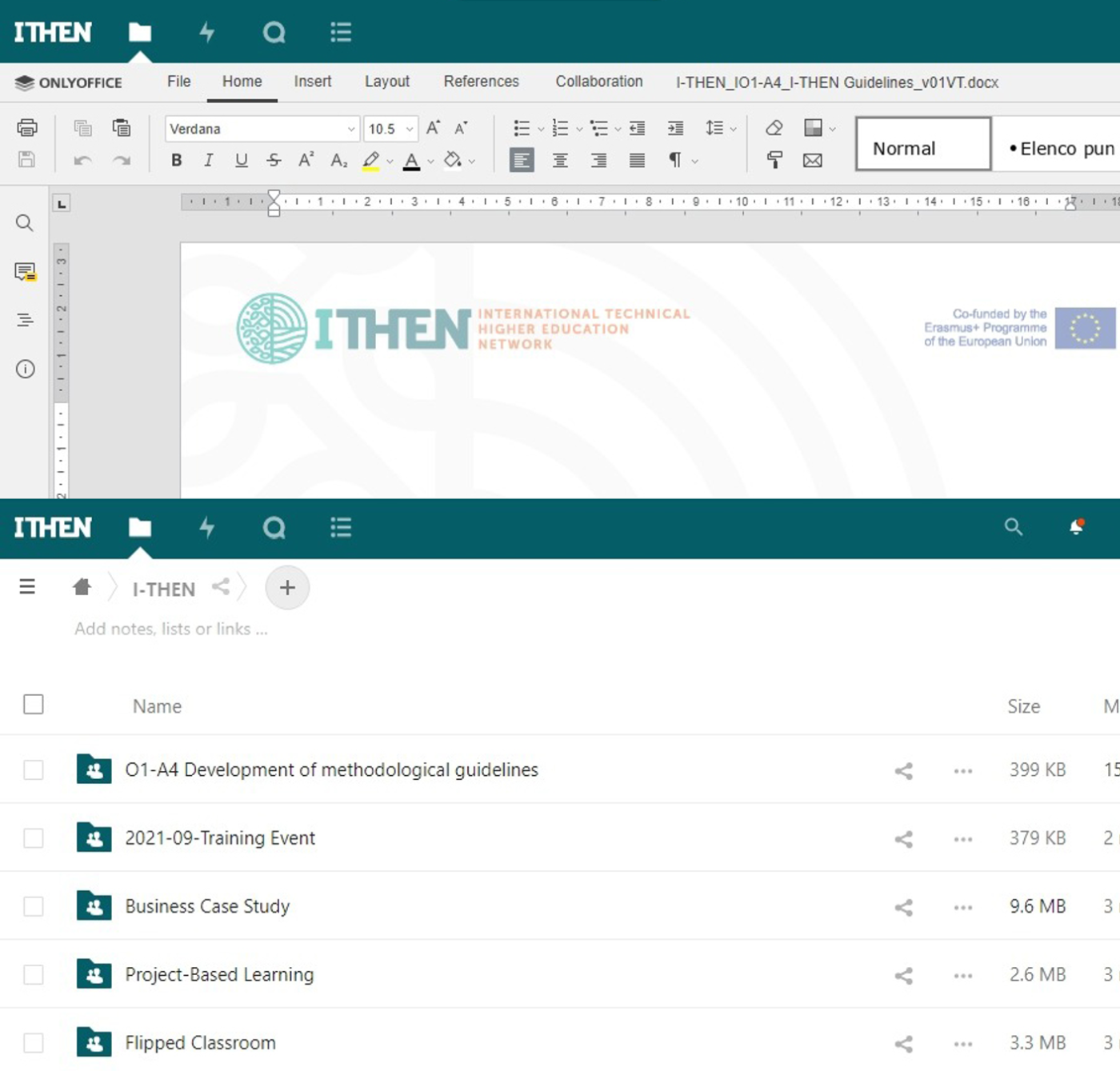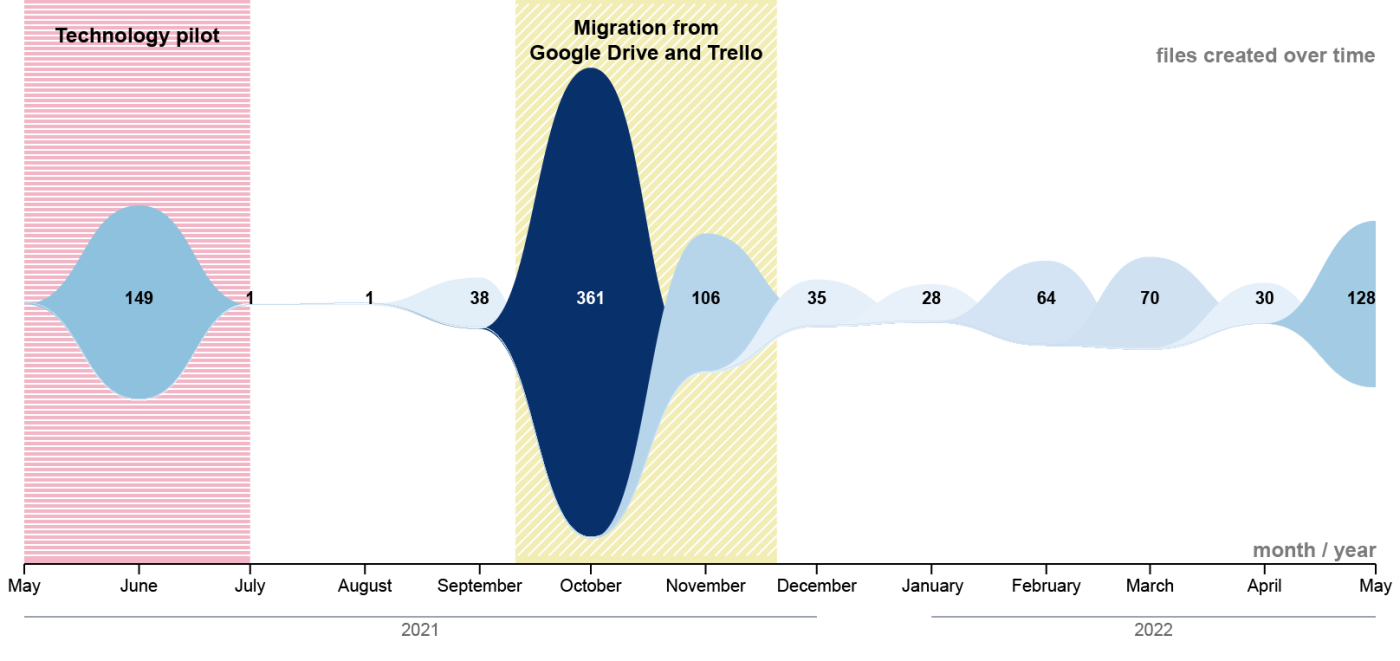Open Source digital platform for ITHEN - a success story
- Published on
One of our primary goals for OneOffTech as a partner of the International Technical Higher Education Network (ITHEN) was identifying and testing an open source technology that could support the internal exchange among the project partners, improve sharing and test the platform for the future network (Intellectual Output 2).
During the assessment period in spring 2021 it was clear that a user-centric approach would become the key for identifying the needs of the network. With the help of semi-structured interviews and user stories we collected opinions and wishes that allowed us to envision an open source technology that might fit to the network. The main criteria were:
- A possibility for regular communication among network members (chat for group and bilateral discussions).
- A possibility for common document management (file editing, access to a common folder for all users, co-editing systems).
- A project management tool (tasks board).
Further criteria were an approved open-source license and compliance with European regulations on the processing of personal data (GDPR).
Considering the identified needs we selected Nextcloud because it is Open Source, self-hostable and offers a plugin architecture under which applications can be enabled on-demand.

In May and June 2021, after an introduction training, we successfully implemented a testing and piloting phase. We piloted the tool during an important phase of ITHEN, the development of common interactive methodologies. This rally was a process where communication between partners is a core requirement and a flexible shared editing helpful. Thus, while supporting project partners to share innovation from class among countries, we managed to fulfil our two goals:
- training in the use of the technological tool, so the network members get used to the technology and start becoming comfortable with it.
- obtain feedback on the selected features and identify possible additional features to be added possibly in future.
The feedback after the piloting the technology was clear. Most of the partners found the new tool useful. At the same time it was clear that becoming really comfortable with the technology takes longer then 3 weeks of a pilot.
The feedback after piloting the technology was clear. Most of the partners found the new tool useful. At the same time it was clear that becoming really comfortable with the technology takes longer then 3 weeks of a pilot. So what can be done to get people used to a new technology? The answer is easy: just start using it!
During the Joint Staff Training Event in Koper, in October 2021, we discussed and presented the result of the pilot, had additional training sessions and discussed additional possible features, that could be also useful for the network after the end of the project. Also, during the whole week, the tool was used for preparing and reviewing presentations and documents, collaboratively working on methodologies and for conducting small feedback surveys.
At the end of the week we all felt comfortable enough with the technology to the point that we jointly decided to move all the documents stored so far in Google Drive to Nextcloud and to move the project management from Trello to Nextcloud Deck. And we started using it on a daily basis.
The graph below shows where we stand now: how the 30 users interacted with the platform from the perspective of file uploads.

We are very happy to conclude that the technology has been established as our digital platform, that also contributes to the permanent creation and consolidation of the network.
And yes, a digital technology can support the formation of a network if the focus remains on people.
During the project meeting in Portugal in May 2022 the partners started to assess options how to keep the platform up and running after the project ends and further develop it further. We elaborated good ideas and we are confident that the platform can become the digital platform of the network also in future, to improve the communication among the network members, to assure that all the outputs and knowledge products are collected and can be easily accessible to current and future members.